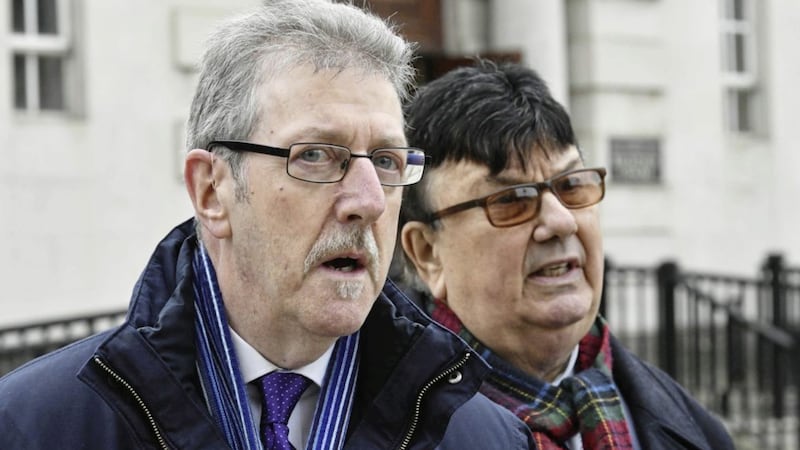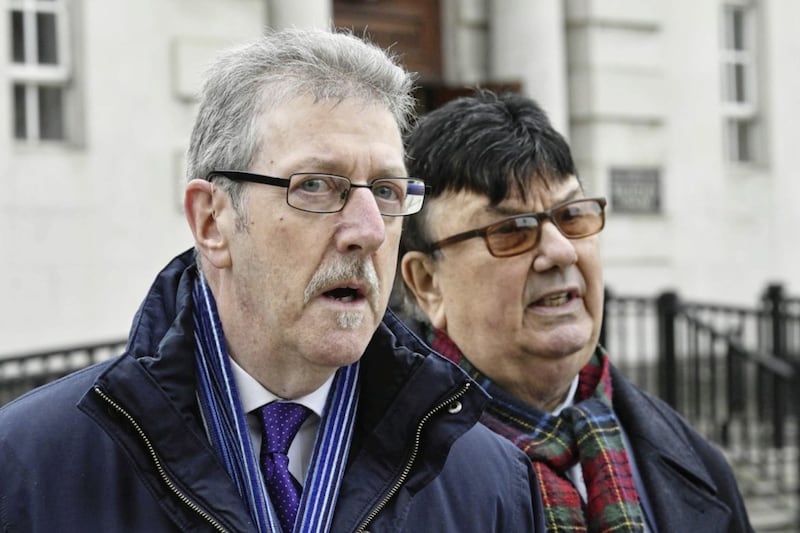There might seem to have been little coverage of the government’s £1.5m payment to survivors of the Miami Showband massacre - and that might seem to be the point.
The financial settlement bought proceedings at Belfast High Court to a close before any evidence was heard and without any admission of liability. As a result, there is nothing to report, apart from this extraordinary outcome itself.
Survivors say they agreed to a settlement because they feared the government’s amnesty proposals were about to stop the case.
A good question now for the secretary of state is how his amnesty’s ‘information recovery body’ might take this matter forward.
According the proposals, the body’s investigators will have “full access to information from UK state agencies”, including the police, armed forces and intelligence services.
**
The Good Friday Agreement requires the European Convention on Human Rights to be “incorporated into Northern Ireland law” but it does not specify exactly how. So the government is confident it can uphold the agreement while “updating” the Human Rights Act with a new British bill of rights. According to deputy prime minister Dominic Raab this will “strengthen typically British rights like freedom of speech and trial by jury”.
The rights sector is predictably up in arms but a more intriguing objection has come from the intelligence services. They fear fiddling with the act will force more human rights cases to Strasbourg, where judges do not allow intelligence evidence to be concealed through ‘closed material proceedings’. If this concern ends up curtailing Raab’s proposals, it will be a typically British irony.
**
Peter Kyle, Labour’s new shadow secretary of state, has injected a dose of reality into the border poll debate, saying there is “no serious prospect” of a vote in the near future and he would only hold one when “calls become serious”.
This has understandably disappointed the Ireland’s Future campaign, which began during Stormont’s collapse on the premise devolution was finished, justifying moves towards an early poll. But the electorate decisively rejected that in 2019, with the Alliance surge and huge falls in DUP and Sinn Féin support.
Continuing calls for a poll are as oblivious to the passing of that political interlude as Jeffrey Donaldson’s threat to collapse Stormont again.
**
Northern Ireland’s senior health officials have come together to launch a campaign against attacks on NHS staff, after a 20 per cent rise in incidents. In six months up to this March, 5,500 attacks were reported, four-fifths involving physical violence.
The Support our Staff campaign is being described as “unprecedented”, yet there have been numerous similar campaigns and initiatives, all amounting to little more than appeals for better behaviour.
In England, the NHS set up an in-house legal team in 2003 to bring private prosecutions for assault on staff. This was so successful it shamed police and public prosecutors into stepping up criminal cases. Nothing less will get anywhere and it is high time officials here stopped faffing around with posters and did the same.
**
From the height of Drumcree to the end of Camp Twaddell it took 20 years to resolve the 200-year-old problem of parading. Painstaking effort was marred by horrendous setbacks but the bedrock of progress was parading regulation and a firm resolve to uphold it.
Now it has all been undermined by official cravenness over the Bobby Storey memorial parade, which breached parading law as well as Covid restrictions.
The Public Prosecution Service has given up pursuing loyalist blogger Jamie Bryson over an un-notified anti-protocol protest, telling him he has no case to answer after he drew comparisons with the treatment of Sinn Féin politicians at Storey’s funeral.
It has become unviable to enforce parading regulation against loyalists because of the blatant refusal to enforce it against republicans - as Bryson will be sure to broadcast far and wide.
**
Conservative pollster Lord Ashcroft’s latest survey on Northern Ireland was conducted with an online panel of 3,300 respondents between November 15 and 18.
On November 12, Belfast polling company LucidTalk emailed its thousands of online panellists about a survey “launched this coming Monday (15/11) on behalf of a political and research organisation (London).”
Despite that hardly secretive coincidence, neither side declares whether or not they work with each other. There would be nothing wrong if they did but it would be useful to know if Northern Ireland polling has any variety, or if it just the same panel being re-analysed again and again.
**
Loyalist graffiti has appeared across North Down that reads: “Warnings were given, they haven’t been heeded. Our message is clear, a war is needed.”
It was signed ‘PAF’ (Protestant Action Force) and presumably relates to Brexit.
While in no way wishing to play down the sinister nature of these threats, the authority of a declaration of war is somewhat undermined when it rhymes.
This is why, when German invaded Poland, Neville Chamberlain did not say: “I have to tell you now that no such undertaking has been received, and that consequently this country is very peeved.”
Nor did President Roosevelt call Pearl Harbour “a date that will live in infamy, forcing us to send in the infantry”.








